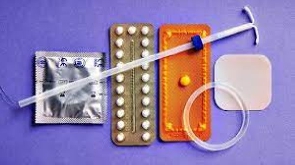A recent study conducted in three public universities in Ghana has revealed that about 93% of sexually active adolescents in these institutions do not use contraceptives during sex.
The study also found that 80% of these individuals have basic knowledge regarding Adolescent Sexual Reproductive Health (ASRH) issues.
The study, which involved 675 university respondents, further discovered that over half of the participants were sexually active and had sexual partners or were in relationships.
These findings highlight the need for increased attention from university authorities and policymakers towards addressing the sexual reproductive health needs of adolescents in public universities.
The findings were in the conclusions drawn from research led by Dr. Gifty Ekua Merdiemah, a Research Fellow and Clinical Trials Coordinator at the University of Ghana Medical Centre (UGMC).
The study's results were presented during a workshop organized by the African Health Economics and Policy Association (AfHEA), in collaboration with UGMC and the Institute of Statistical Social and Economic Research (ISSER).
The main objectives of the workshop were to present the findings related to the cost of priority interventions for addressing ASRH in Ghana and to develop operational and policy recommendations aimed at promoting equitable access and utilization of ASRH services within and outside schools.
Conducted between 2018 and 2021, the study specifically focused on three public universities: the University for Development Studies (UDS) representing the northern zone, the Kwame Nkrumah University of Science and Technology (KNUST) for the middle zone, and the UPSA for the southern zone.
The lead researcher Dr. Merdiemah emphasized that the study highlighted the health needs of adolescents, which should include Sexual Reproductive Health (SRH) education, sexual intercourse, and contraceptive use.
She further emphasized that the cost and accessing of healthcare services were significant barriers for adolescents seeking reproductive health facilities.
The study's recommendations, Dr. Merdiemah said there is the urgent need for collaboration among all stakeholders to develop policies and programs addressing the SRH needs of adolescents in public universities.
Dr. Merdiemah explained that this was done to ensure a smooth transition to adulthood, and that all public universities should add a well-structured ASRH orientation programs and adolescent health corners at vantage points with a wide range of SRH services.
Additionally, she called on the Ministry of Education to ensure the availability of age-specific sex education programs in educational institutions, led by well-trained teachers and peer educators.
Presenting the findings of a separate study titled ‘Access to adolescent sexual and reproductive health services in Ghana: a qualitative study,’ Dr. Ama Pokuaa Fenny from ISSER highlighted that sex education in schools was often inadequate and there was a lack of affordable and non-judgemental SRH services.
To enhance access to SRH services, Dr. Fenny continued that there is the need to train teachers and health staff to deliver relevant sex education, as well as the necessity of affordable and adolescent friendly SRH services.
The Member of Parliament (MP) for Wa CentraAbdul-Rashid Hassan Pelpuo, who was also present, called for increased availability of information and services in areas accessible to adolescents, to support their well-being.
NW/WA
Watch the latest episode of Everyday People on GhanaWeb TV below:
Share your news stories and ideas with GhanaWeb

To advertise with GhanaWeb

You can also watch this episode of People & Places here:
Health News of Thursday, 6 July 2023
Source: www.ghanaweb.com













